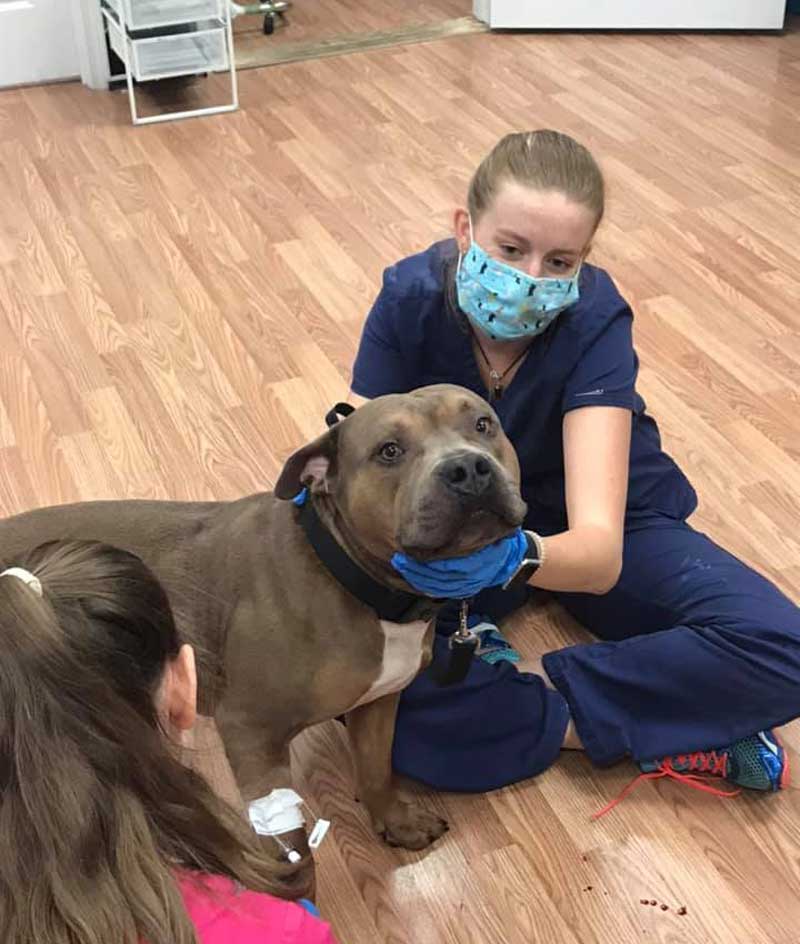FAQs
At Ark Animal Hospital, we get a ton of interesting questions from pet parents. Below are some common FAQs that might help answer any questions or concerns.
What are your hours?
You can find our current business hours here >
Which vaccines does my pet need? What do they mean?
Consider splitting up vaccines if you have a small breed dog, if your dog is due for multiple vaccines, or your dog has a prior history of vaccine reactions.
Specific infections/infestations are potentially zoonotic (you can catch it from your pet) please strongly consider protecting your pet and family from Rabies, Leptospirosis, Roundworm, and Hookworm.
Canine Core Vaccines (recommended for all dogs)
- Distemper- a highly contagious disease that can cause respiratory, GI, and seizures, often fatal.
- Parvo- a highly contagious disease that causes severe GI symptoms, is very common and is often fatal.
- Hepatitis- a disease which can cause mild respiratory symptoms to severe uncontrolled bleeding, liver and kidney failure, can be fatal.
- Leptospirosis- a bacterial disease that can be transmitted by ingesting contaminated water (pond, stream, puddle, even wet grass) and can cause kidney or liver failure, often fatal.
- Rabies- a deadly viral disease transmitted from the bites of infected mammals, there is a legal obligation to keep your dog current on a rabies vaccine
Other Canine Vaccines to Consider
- Bordetella and Parainfluenza- highly contagious, very common- implicated with “Kennel Cough”.
- Canine Influenza- a highly contagious respiratory infection that often leads to pneumonia, recommended if your dog goes to grooming, boarding, dog parks, or dog shows.
- Lyme disease- an infectious disease transmitted by ticks. Recommended if your dog will travel through the North East, MN, or CA, or areas frequented by deer (transmitted by deer ticks).
Feline Core Vaccines (recommended for all cats)
- Rhinotracheitis- a highly contagious respiratory disease, which can lead to chronic eye infections.
- Calicivirus- a highly contagious respiratory disease that can cause oral ulcers, severe cases can lead to multiple organ dysfunction and death.
- Panleukopenia- a highly contagious disease that causes severe vomiting and diarrhea, an especially high mortality rate, especially with kittens.
- Feline Leukemia- (for all kittens) the second leading cause of death in cats, 85% of persistently infected cats die within three years of diagnosis, causes immune suppression, and anemia, and potentially can lead to cancer.
- Rabies- a deadly viral disease transmitted from the bites of infected mammals, cats are much more likely to be infected with rabies than dogs, and there is a legal obligation to keep your cat current on a Rabies vaccine.
What preventatives do you offer?
While we do offer a full online pharmacy with almost every veterinary medication and prescription food available, the following preventatives offered at our location:
Canine Heartworm, Flea, and Tick Prevention
Every dog should be on a heartworm preventative, your veterinarian will help you decide which one is right for your pet.
- Heartgard Plus (6 weeks or older): monthly chew, prevents heartworm, roundworms, and hookworms- safe for pregnant and nursing pets.
- Bravecto (4.4 pounds and 6 months of age): 3-month chew, prevents fleas and ticks.
- Revolution or Selarid (6 weeks of age): monthly topical, heartworm, flea, sarcoptic mange, ear mites, moderate tick control- safe for pregnant and nursing pets.
- Trifexis (5 pounds and 8 weeks of age): monthly chew, prevents heartworm, fleas, hookworms, whipworms, and roundworms.
- Proheart 6 (6 months of age): 6-month injection to prevent heartworm.
- Proheart 12 (12 months of age): 12-month injection to prevent heartworm.
- Capstar (2 pounds and 4 weeks of age): daily fast-acting oral flea treatment- only lasts for 1 day- safe for pregnant or nursing pets.
- Simparica (2.8 pounds and 6 months of age): monthly tablet, that prevents fleas and ticks.
- Simparica Trio (2.8 pounds and 8 weeks of age): monthly tablet, that prevents fleas, ticks, heartworm, roundworm, and hookworm.
Feline Heartworm, Flea, and Tick prevention
Cats that go outdoors are recommended to be on heartworm prevention, your veterinarian will help you decide which one is right for your pet.
- Bravecto (2.6 pounds and 6 months of age): 3-month topical prevents fleas and ticks.
- Revolution Plus (2.8 lbs and 8 weeks of age): 1 month topical prevents fleas, ticks, ear mites, roundworms, hookworms, and heartworms.
- Capstar (2 pounds and 4 weeks of age): daily fast-acting oral flea treatment- only lasts for 1 day - safe for pregnant or nursing pets.
How to compare veterinary procedures?
When it comes to the care of your pets, ask important questions. Don’t guess, don’t assume. KNOW the standard of care that your pet is receiving from your vet.
Here are a few things to be sure that you KNOW before your pet undergoes a procedure with any veterinarian:
Surgical & Dental Procedures:
- Is your pet being intubated (a tube placed in the throat to secure/protect the airway)?
- Is an IV catheter for surgical fluids and access to a vein in the case of emergencies being placed?
- Is pre-surgical bloodwork being done to check the function of the liver and kidneys to check for any hidden risks that could be avoided?
- Is your pet under full, consistent isoflurane gas anesthesia vs. just repeated injections?
- Is your pet being monitored by experienced professionals while under anesthesia?
- Is your pet on full anesthesia monitors that monitor the temperature, heart rate, pulse, and blood oxygen levels?
- Anesthesia lowers the body temperature, what type of heating system is being used? If using a traditional heating pad, how are burns avoided?
- WHO is performing the procedure?
Vaccines and Wellness Care:
- Are single-use, sterile syringes used for every injection and/or blood draw?
- Are single-use, one-dose vaccines being used or a large multi-dose vial?
Please feel free to call us at (864) 814-0012 for any other concerns you might have about your pet.

